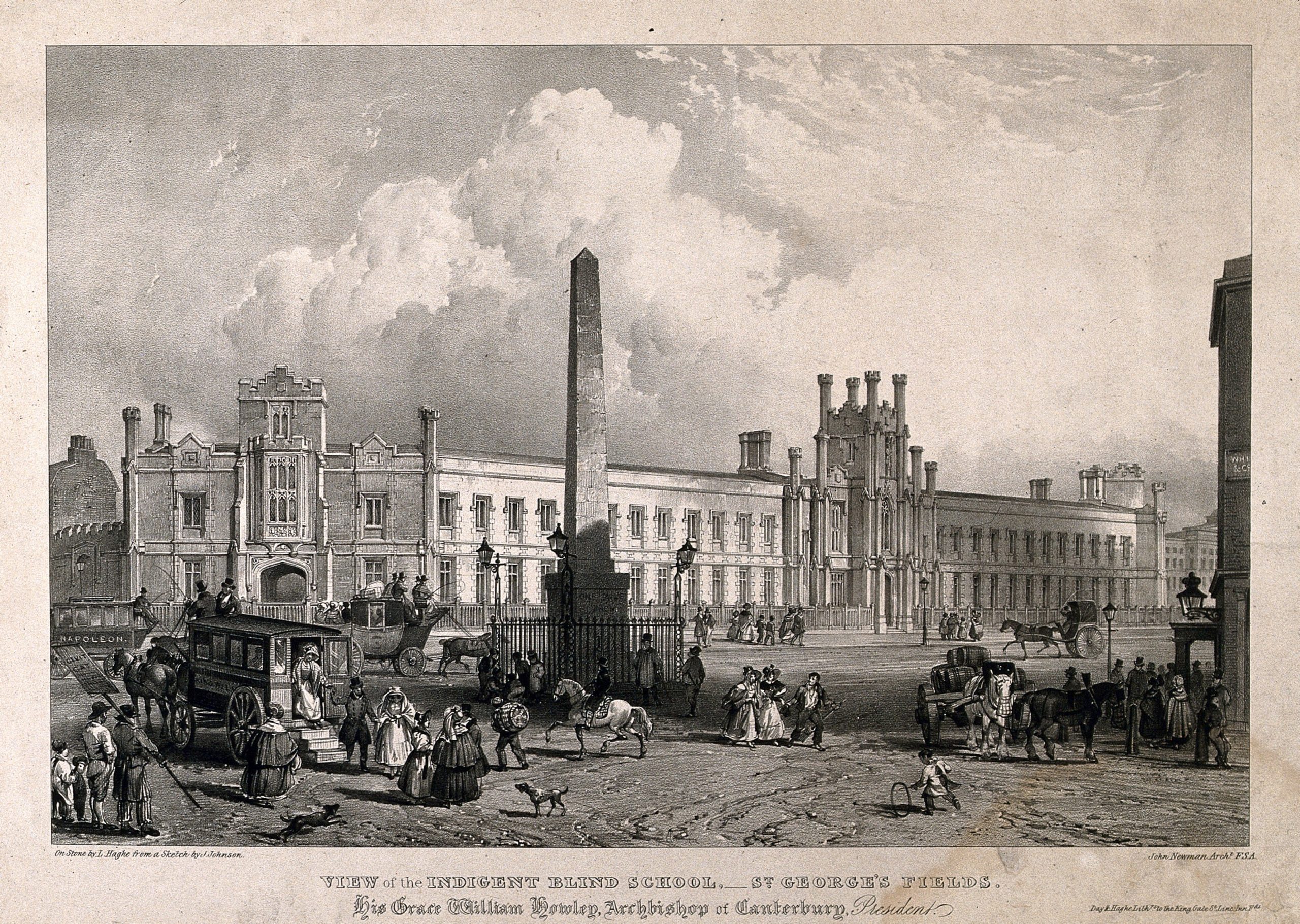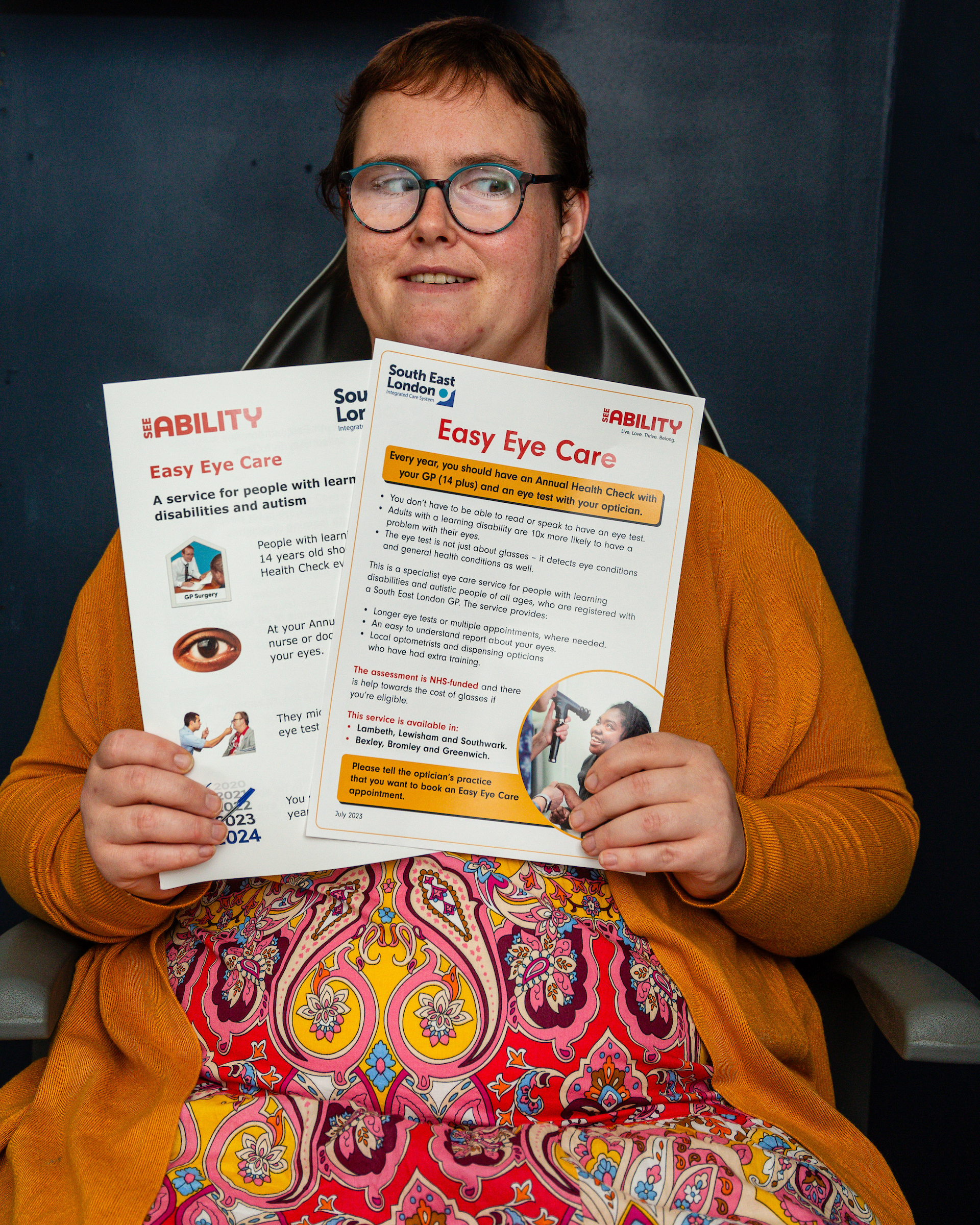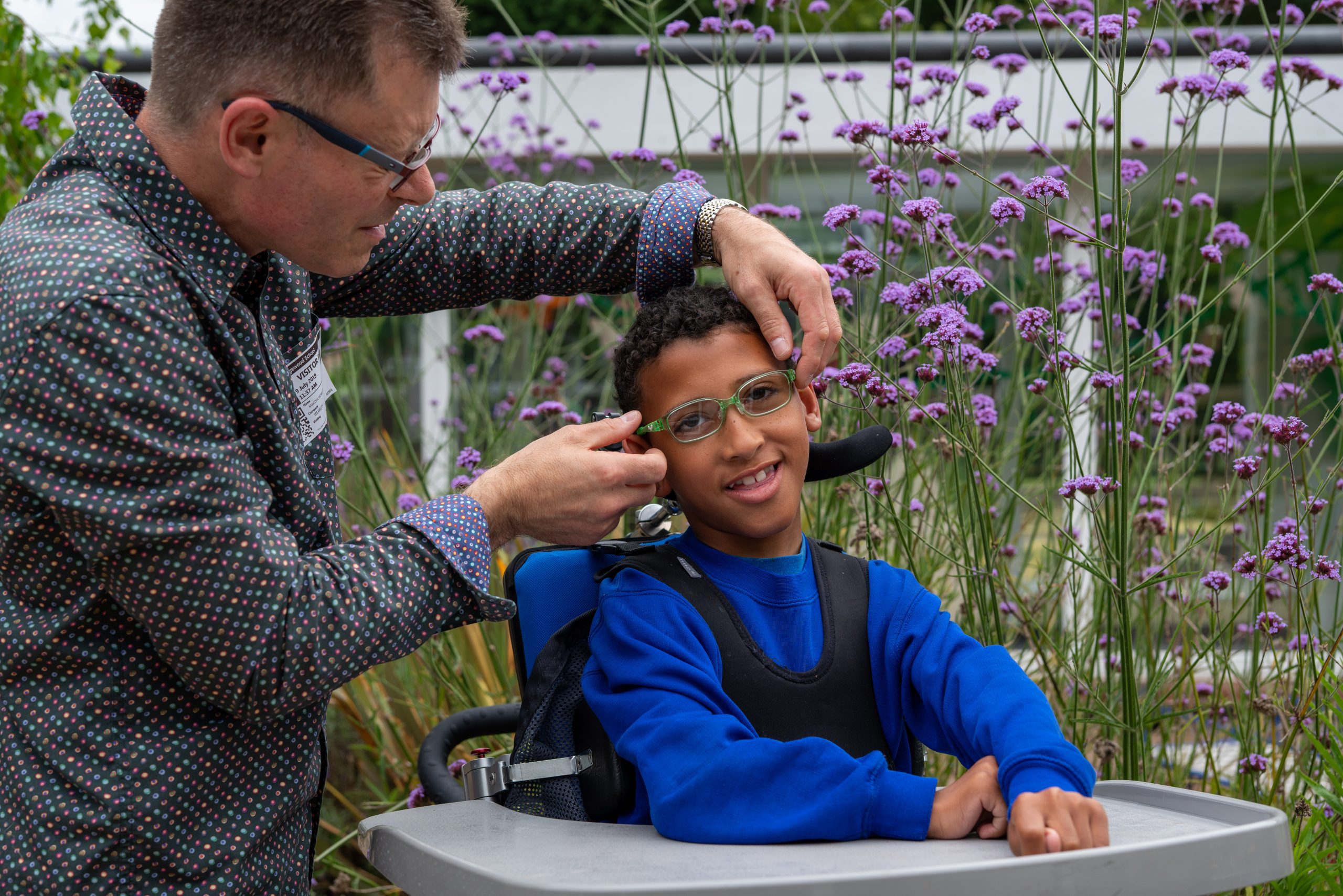Eye Health Care Charity of the Month
SeeAbility is a charity that works to support people with learning disabilities, autism and sight loss. Its strapline is ‘Live, love, thrive and belong’, principles that have guided the charity over its long history.

SeeAbility’s first school for the blind
This year, SeeAbility celebrates its 225th anniversary year – along with all of its achievements.
Past: history and royal patronage
When SeeAbility was founded in London in 1799, it was with the goal of ensuring people with sight loss learnt skills to lead an independent life. In 1911, by which time the school had relocated to leafy Surrey, was granted Royal Patronage and became the Royal School for the Blind – a name many people still recognise.
By the 1990s, and with Princess Diana as its patron, the charity became SeeAbility, diversifying to support people with learning disabilities, autism and sight loss in their own homes, across southern England.
Present: support and special schools
That day-to-day care and support continues to make a huge difference, particularly centred on those with higher support needs and people with learning disabilities and autism who have previously lived within secure hospitals. The charity also has a supported employment programme that helps people find their first job, and an advocacy programme that supports people to speak up and campaign for equality and inclusion.
However, it was a realisation that people with higher support needs were missing out on eyecare, that led the charity to start its own programmes more than 20 years ago.
SeeAbility raises awareness that people with learning disabilities are 10 times more likely to have a serious sight problem than other people, and at least 60 per cent need vision correction. Every eyecare professional supporting someone with a learning disability can access the charity’s advice and freely available ‘easy read’ accessible information library on its website.

Grace with the charity’s Easy Eye Care materials
Also on offer is training for eyecare professionals and optical practices about learning disabilities and autism, as well as people with lived experience themselves, raising awareness of the adjustments that can be made.
Training is led by SeeAbility’s Eye Care Champions, who all have lived experience. Eye Care Champion, Grace McGill, is a fantastic example of someone who has broken down many barriers, with SeeAbility’s support. This year Grace and the team have reached nearly 4,000 people.
The charity is also working on systemic change. Firstly, to establish a Local Optical Committee Support Unit Easy Eye Care Pathway where accredited practices are NHS locally funded to offer specialist support for people with learning disabilities. Its ambition is to have this service available in every area – and Grace has helped get this established in South East London.
Secondly, to establish the case for a special schools eyecare service, providing not just full eye examinations, but also the specialist dispensing and ongoing support with spectacles that over 40 per cent of these children need to establish good vision.
SeeAbility’s clinical team of optometrists and dispensing opticians (DOs) have seen more than 3,000 children in over 30 special schools in London alone this year. This has been working to a framework that ABDO and other eyecare professional bodies created with SeeAbility, and one which has been positively evaluated by NHS England in more than 80 special schools so far.
Future: DOs getting involved

Martyn dispensing with Eli in a special school
Finally, in June 2023, a decade on from this collaboration, the government promised a roll-out of an NHS service to all special schools in England, starting this year.
The team is now waiting to see how faithfully the NHS and government will stick with (and fund) what has successfully worked as a model of care. As long as they accept the benefits that specialist dispensing brings to these children, there is a huge opportunity for DOs to get involved, it believes.
Martyn Howlett is SeeAbility’s senior DO. He says: “This is honestly one of the most rewarding experiences in my professional life. My clinical skills are being honed every day, as every dispense is different and I learn so much from being in the school and with teachers too.
“Not everyone can tolerate a pair of spectacles from the off, but that is part of the creative joy of working out just what frames and lenses will do justice for that child. On my visits I follow up with my caseload of spectacle wearers to ensure that they are always wearing the glasses they need, and that everyone that everyone supporting them knows what they can see with and without their glasses. We know from research, without this dispensing support children will not benefit from the lifechanging impact that spectacles have.
“I feel I am making a huge difference for so many children who would otherwise struggle to get the eyecare they need,” adds Martyn.
The charity is inviting all ABDO members to keep in in touch with on any aspects of the work highlighted in this feature.
“We hugely value any support in our 225th year as we fundraise for our programmes of work that – we hope you agree – have life-changing outcomes,” it says.